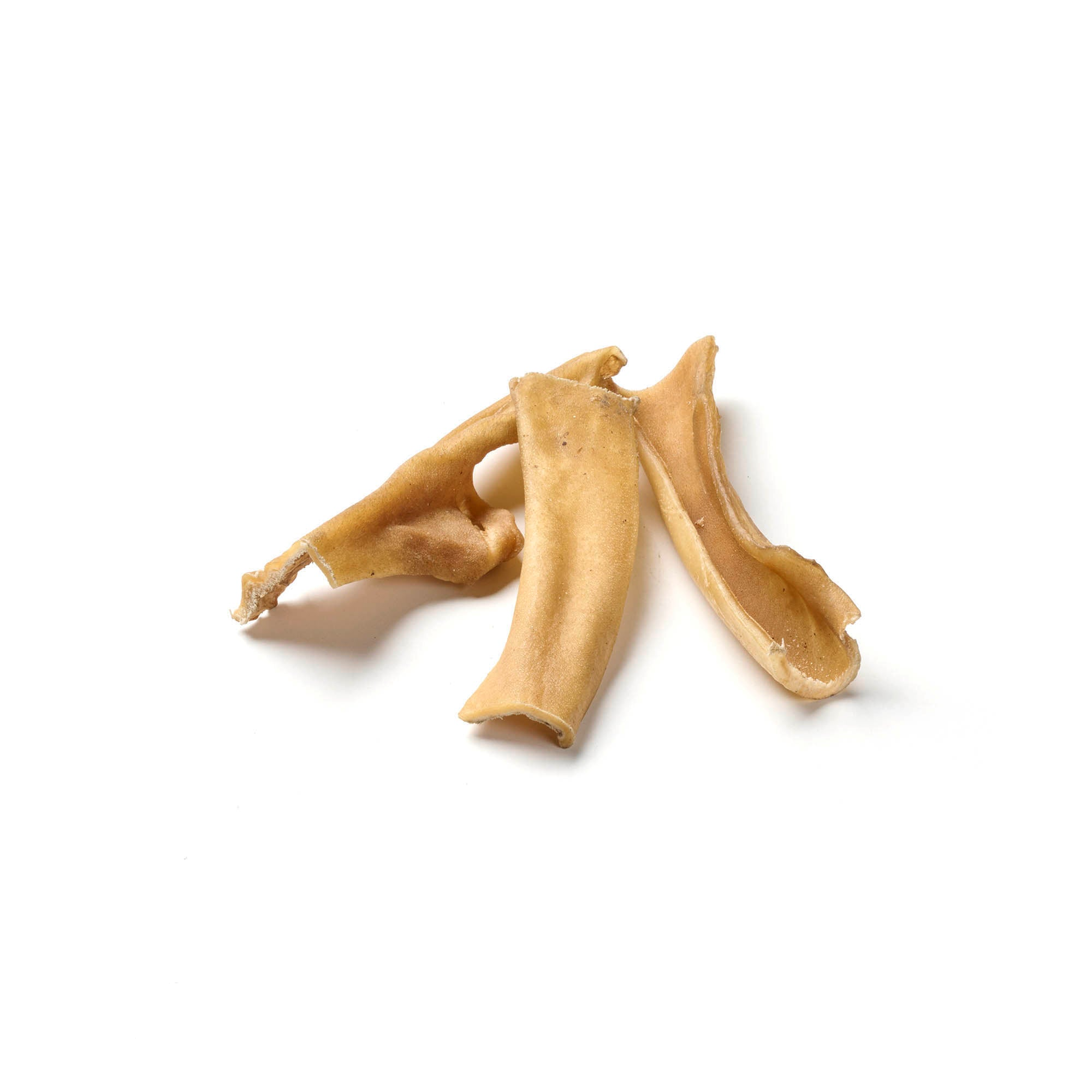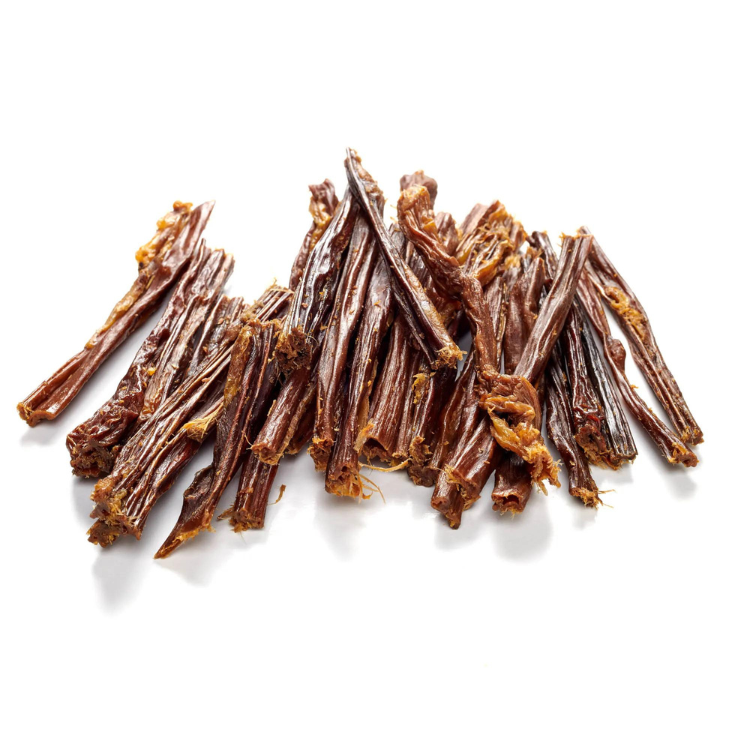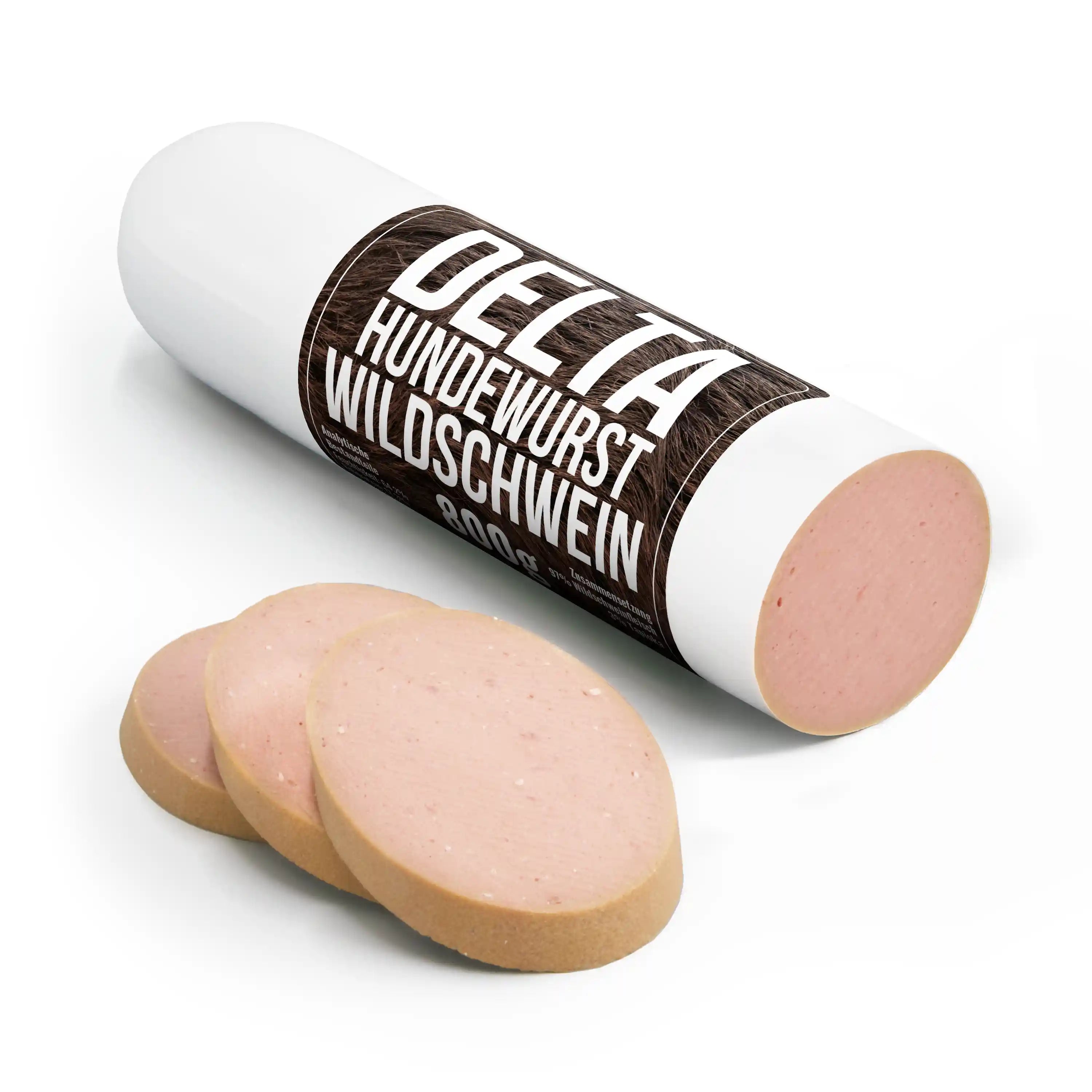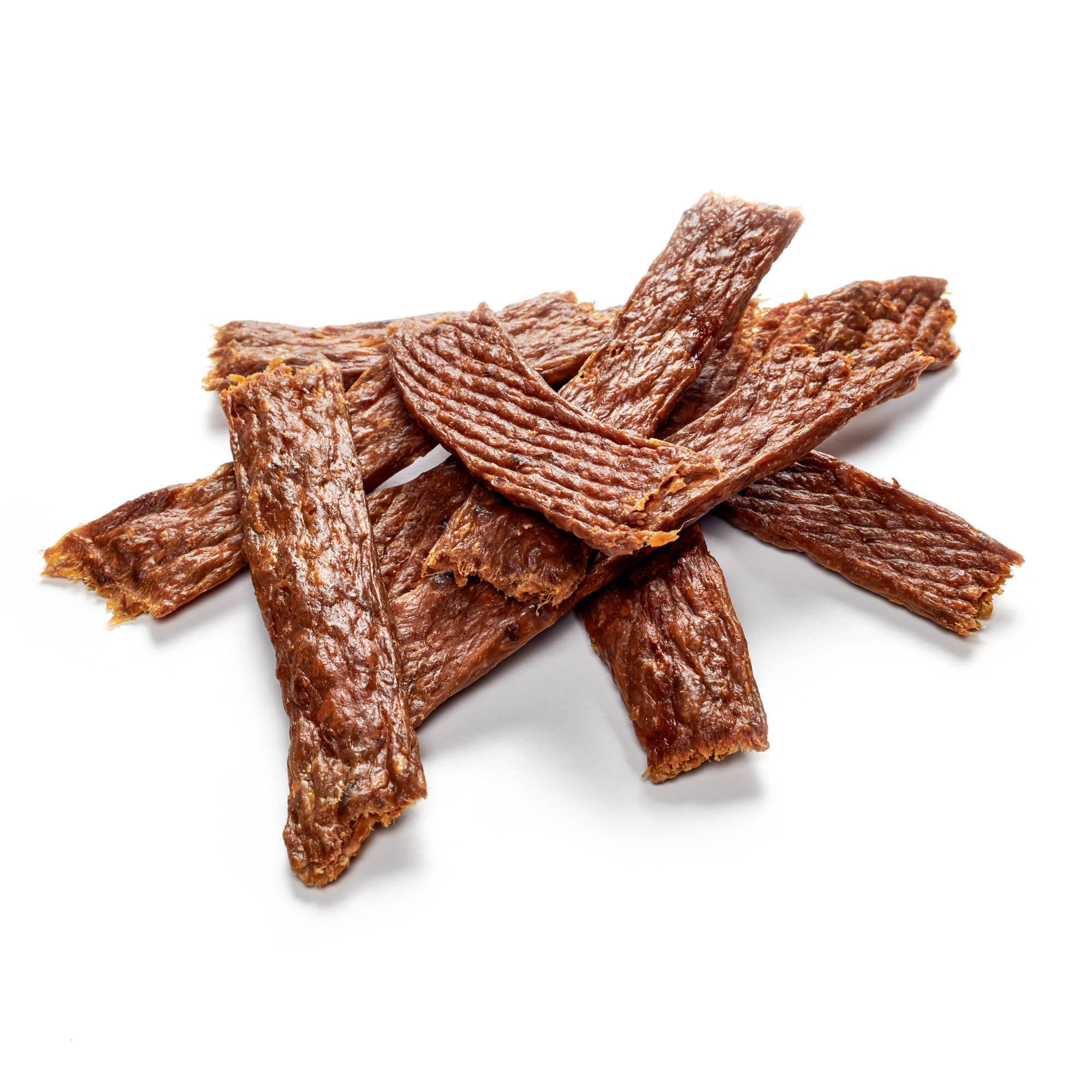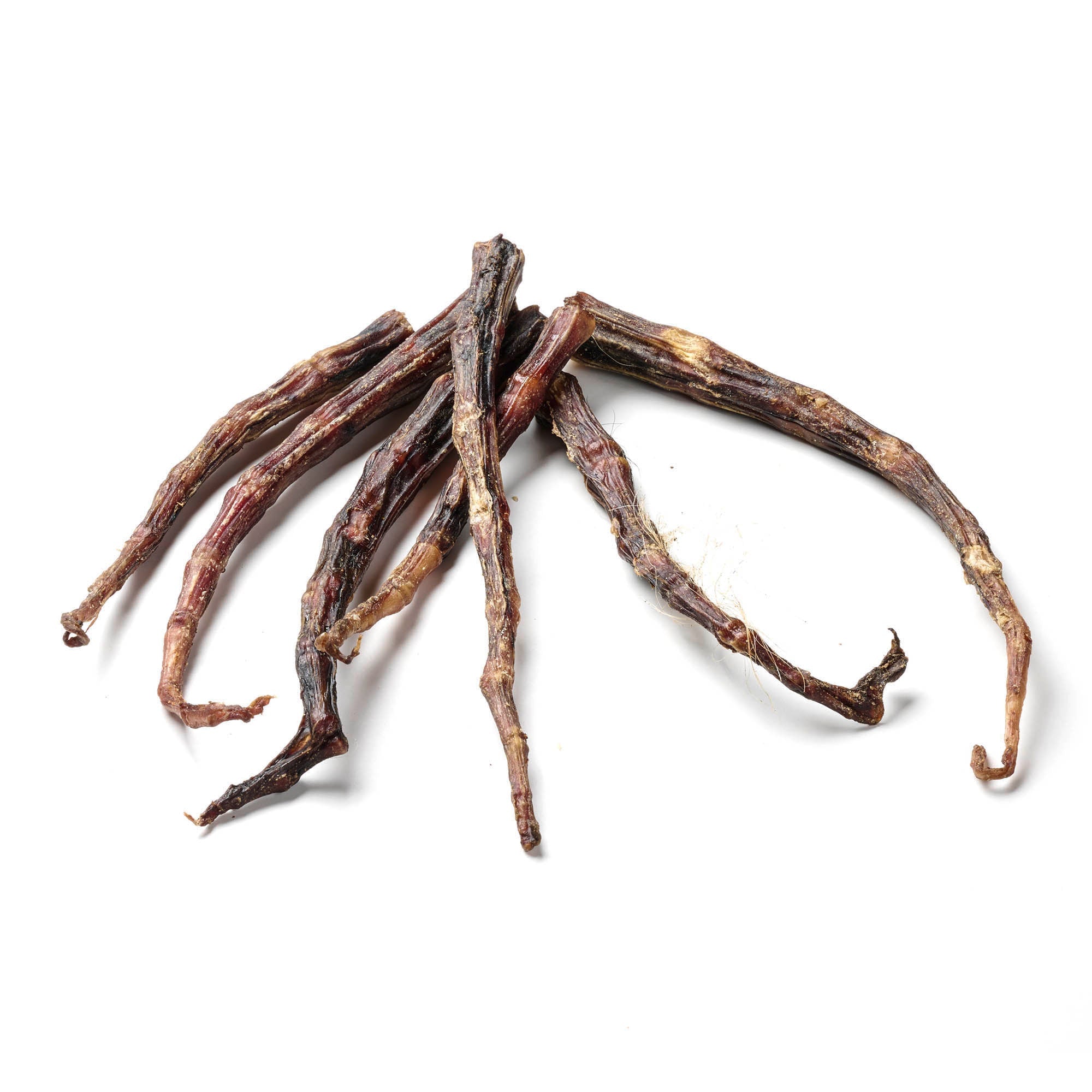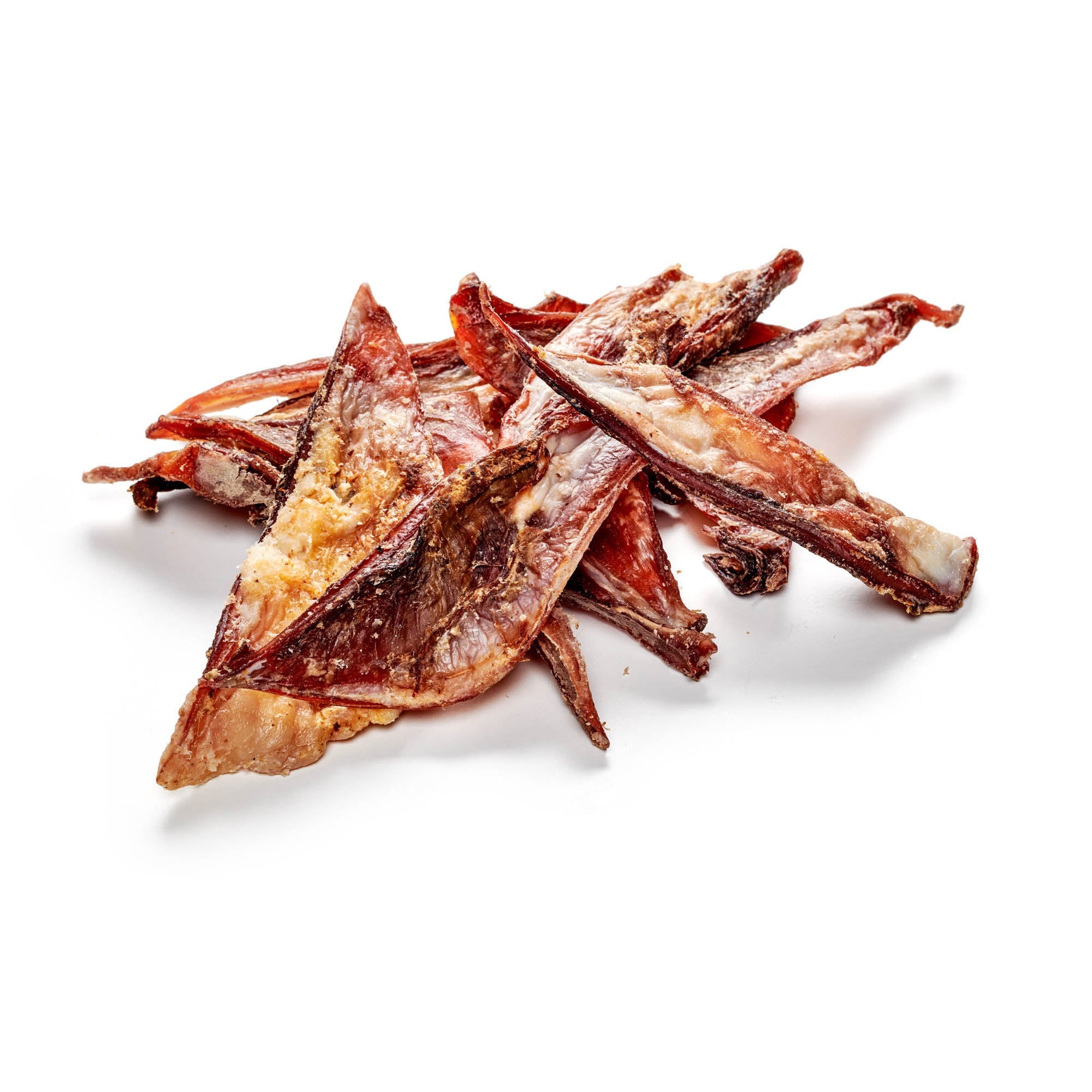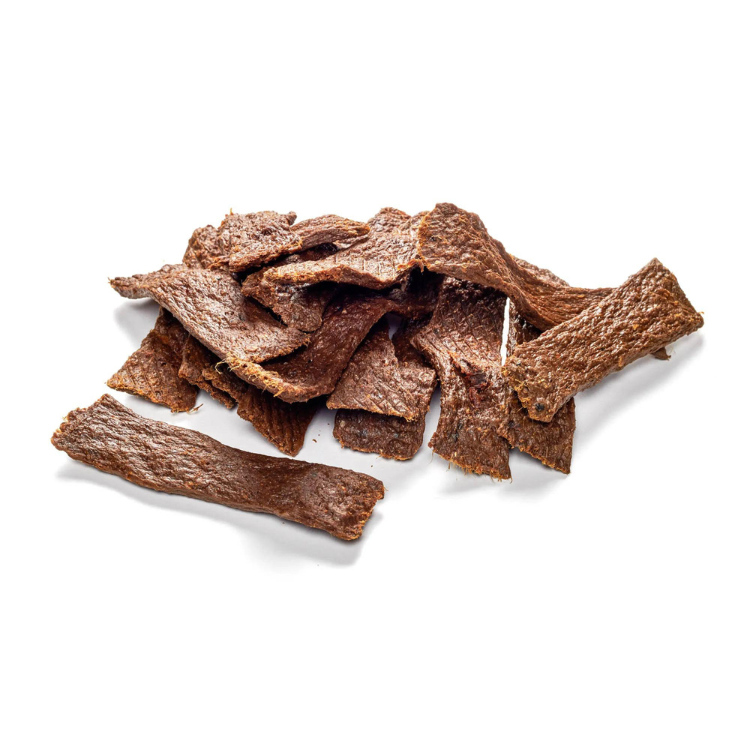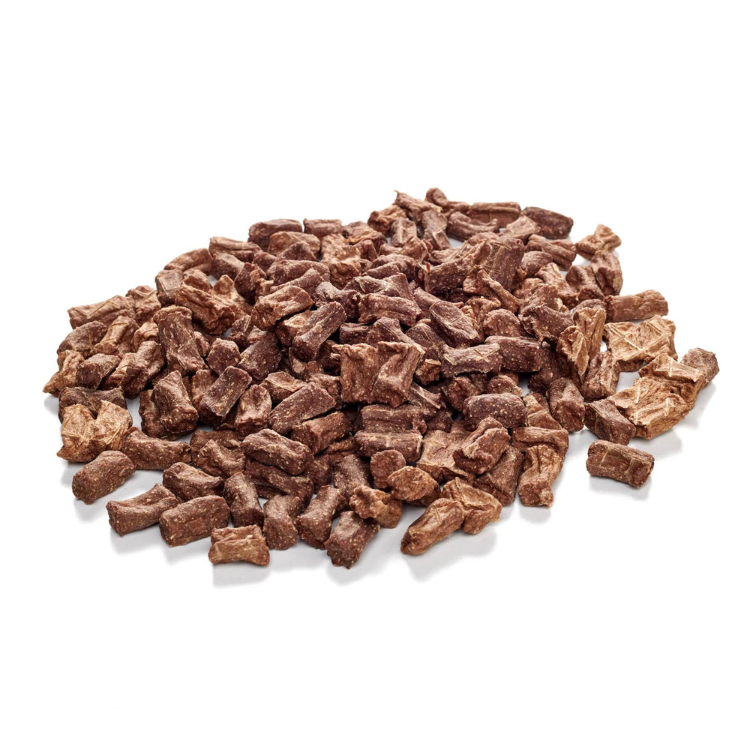
Special diets for dogs with chronic diseases
Share
At first glance, it may seem simple: a dog frolicking happily in the park, the grass beneath his paws, the sunlight breaking through the trees. But behind this apparent lightheartedness can lie a complex story. As with humans, dogs carry their own, often invisible, burdens. Chronic illness is a silent affliction that affects many of our four-legged friends, and while they continue to go through life with their tails wagging, they require a special kind of care.
Contents: Special diets for dogs with chronic diseases
- Overview of chronic diseases
- Chronic kidney disease in dogs
- Diabetes mellitus in dogs – When blood sugar goes crazy
- Allergies and intolerances – When food becomes the enemy
- Obesity – When pounds become a burden
- Heart disease – A question of the right food
- Conclusion
A dog's health is like a puzzle. Every piece has to fit together perfectly to create a harmonious whole. Of these puzzle pieces, nutrition is perhaps one of the most important. It's not just a question of what ends up in the bowl, but how that food helps to maintain or restore a dog's health. A specially adapted diet can work wonders to meet the constant challenges of chronic disease.
Reward your dog with our high-quality chew products!
Overview of chronic diseases
Nutrition plays a central role in the treatment of dogs with chronic diseases. Specially adapted diets are designed to improve quality of life and relieve symptoms. These diets take into account the specific needs and limitations associated with different diseases. Here is an overview of the most important aspects of such diet plans:
- Kidney disease: Diets with reduced protein and controlled phosphorus and sodium levels to minimize kidney strain.
- Diabetes mellitus: High-fiber diet to stabilize blood sugar levels.
- Allergies: Hypoallergenic diets that use rare or hydrolyzed proteins to avoid allergic reactions.
- Obesity: Low-calorie diets that support healthy weight loss while ensuring that all nutritional needs are met.
These special diets are designed to not only address the specific symptoms, but also promote the dog's overall health and well-being. Below we take a closer look at each diet.
Chronic kidney disease in dogs
Kidney disease is one of the most common chronic diseases in dogs, requiring extensive medical care and a special diet. The kidneys' function of filtering and excreting waste products from the blood is vital to the dog's health.
When the kidneys do not function properly, toxins and waste products can build up in the body, leading to further health problems. A carefully balanced diet is therefore crucial to minimize the strain on the kidneys and slow the progression of the disease.
These diets are usually low in protein and rich in special minerals and vitamins that are specifically designed to support impaired kidney function and improve the dog's quality of life.
Protein reduction – why less is sometimes more
A key element in the diet of dogs with kidney disease is reducing protein levels. Since the kidneys are responsible for excreting protein breakdown products, lowering protein levels in the diet can help reduce the strain on the kidneys.
However, it is important to choose high-quality proteins that meet the dog's needs without placing excessive strain on the kidneys. Suitable protein sources are fish and poultry , as they are easily digestible and contain fewer harmful phosphates.
Vegetable proteins such as peas or sweet potatoes are also recommended as they are a good alternative to traditional meat sources and are well tolerated.
Which protein sources are particularly suitable?
When choosing proteins, particular attention should be paid to quality and digestibility. Fish protein, especially from fatty fish such as salmon or mackerel , is not only easy to digest, but also rich in omega-3 fatty acids, which have anti-inflammatory properties and can promote kidney health.
Poultry, especially boiled or steamed, is also an excellent source of protein as it contains fewer phosphates than red meat . Plant-based proteins from sources such as peas and sweet potatoes are a kidney-friendly option that is also suitable for sensitive dogs or dogs with special dietary needs.
Reduction of phosphorus and sodium
Controlling phosphorus and sodium intake is also very important in the diet of dogs with kidney disease. Too much phosphorus can further damage the kidneys and lead to deterioration of kidney function.
Sodium can increase blood pressure, which puts additional stress on the kidneys and can worsen their condition. Reducing these minerals in the diet can help slow the progression of the disease and improve quality of life.
Foods low in phosphorus
Kidney-friendly foods that should be included in the diet of a dog with kidney disease include rice, boiled potatoes, and specific vegetables such as green beans and carrots.
Not only are these foods low in phosphorus, they are tasty and easy to prepare, making them an excellent choice for everyday feeding. They provide essential nutrients while being gentle on the kidneys, making them an important component in the diet of dogs with impaired renal function.
Diabetes mellitus in dogs – When blood sugar goes crazy
Diabetes mellitus is a major health problem in both dogs and humans. This endocrine disease, in which insulin production is inadequate or the body does not respond appropriately to insulin, requires careful and thoughtful treatment and management.
A key aspect is the stabilization of blood sugar levels, which can be achieved through a specially adapted diet and regular veterinary monitoring. These measures are crucial to maintain the dog's quality of life and avoid serious complications.
Fiber – The key to blood sugar control
Fiber plays an important role in the diet of diabetic dogs because it helps stabilize blood sugar levels. By slowing the absorption of glucose into the bloodstream, fiber can prevent sharp fluctuations in blood sugar levels that would otherwise lead to the typical symptoms of diabetes.
A diet rich in fiber not only helps control diabetes, but also improves the dog's overall well-being, supports digestion and helps regulate weight.
Soluble and insoluble fiber
There are two types of fiber: soluble and insoluble. Soluble fiber, such as that found in oats, barley, apples and blueberries, forms a gel-like substance in the digestive tract. This property slows digestion and results in a gradual release of sugar into the blood, dampening blood sugar spikes after eating.
Insoluble fiber, found in whole grains, carrots and tomatoes, promotes intestinal health and supports regular digestion, which is especially important for diabetic dogs to minimize the risk of digestive disorders and related problems.
Regular feeding times and portion control
Maintaining regular feeding times and carefully controlling food portions are other important aspects of managing diabetes in dogs. Consistent and predictable feeding times combined with accurately measured food portions help keep blood sugar levels in a healthy range. This helps to optimize insulin response and minimize blood sugar fluctuations throughout the day.
Advantages of a fixed feeding plan
A structured feeding schedule plays a crucial role in the life of a dog with diabetes. When meals are given at set times, the dog's body can better learn to regulate insulin production and blood sugar levels.
This helps to stabilize the health status and can prevent unpredictable spikes or drops in blood sugar that are more common with irregular feeding. Such a feeding schedule also makes it easier for the veterinarian and owner to monitor and adjust insulin therapy, making diabetes management more effective.
Make your dog happy with our tasty chews!
Allergies and intolerances – When food becomes the enemy
Just like people, dogs can be sensitive to certain foods, and allergies in dogs can lead to a variety of health problems, ranging from skin irritation and itching to gastrointestinal problems and severe inflammatory reactions.
Managing these symptoms often requires a hypoallergenic diet that contains no or very few allergens. These special diets are designed to avoid common allergy triggers, such as certain proteins or gluten, and instead offer safer alternatives that don't stress the dog's immune system.
Exotic protein sources – a possible solution
In the search for suitable protein sources for allergic dogs, many veterinarians and dog owners turn to lesser-known alternatives. Proteins from kangaroo , ostrich or certain fish species are often beneficial because they are rarely used in conventional dog food and are therefore not recognized by the dog's immune system.
This greatly reduces the likelihood of an allergic reaction and can help reduce the burden on the immune system. In addition to providing a safe source of nutrients, these proteins are rich in essential nutrients that support the dog's overall health.
Examples of hypoallergenic feed
The market offers a wide range of hypoallergenic foods that are specifically designed for dogs with food allergies or intolerances. These products often contain hydrolyzed proteins that are broken down into components so small that they do not activate the dog's immune system .
Monoprotein foods, which contain only a single protein source, also minimize the risk of allergic reactions. These foods are designed to meet the dog's nutritional needs without causing unwanted reactions.
Keeping a food diary – a tool for identifying allergens
An important step in diagnosing and treating food allergies is keeping a detailed food diary. This diary should record exactly what the dog eats, when it eats it, and what reactions it shows to it.
This not only helps to identify potential allergens, but also provides valuable information for the veterinarian , who can use this information to make a targeted diagnosis and suggest an appropriate treatment.
Tips for keeping a food diary
Keeping a food diary involves keeping a detailed record of every meal, snack and treat given to the dog. The exact ingredients and amounts should be recorded, as well as the time intervals between meals.
It is also important to carefully document any behavioral changes, physical reactions or symptoms that occur after feeding. These records should be kept for at least two weeks in order to identify patterns and draw appropriate conclusions.
Obesity – When pounds become a burden
Obesity in dogs is much more than just an aesthetic problem; it is a serious health threat that can increase the risk of diabetes, cardiovascular disease, joint problems and a host of other health problems. Excess weight not only puts strain on the dog's joints and organs, but also affects their quality of life, mobility and overall vitality.
A targeted weight management strategy that includes a customized diet and regular exercise is crucial to controlling your dog's body weight and enabling him to live a healthier, more active life.
Calorie reduction and exercise – the successful duo
The basis for effective weight management in dogs is a combination of a low-calorie diet and sufficient physical activity. Special diet foods are designed to satisfy the dog but provide fewer calories to support healthy weight loss.
These diets often contain increased amounts of fiber and protein, which increase satiety while promoting the maintenance of muscle mass even when overall calorie intake is reduced. Combining these diets with regular exercise not only increases the calorie deficit but also improves the dog's physical health and agility.
Benefits of low-calorie treats
Low-fat chews and treats can also play a role in an effective weight management program. They provide a way to reward and motivate the dog during training without exceeding the calorie budget.
These treats should be carefully chosen to ensure that they are not only low in calories but also nutritious and contribute to the dog's overall health.
Slow weight loss
Gradual and controlled weight reduction is much safer and more sustainable for dogs than rapid weight loss. Reducing body weight too quickly can lead to muscle loss and other health problems, which can further worsen the situation.
Slow weight loss, typically 1-2% of total body weight per week, is considered safe and effective because it helps the body adapt to the changed conditions without losing important nutrients.
Regular weight checks
Regular weight checks, ideally carried out by the veterinarian, are essential to monitor the dog's progress and adjust the diet if necessary.
These checks not only help ensure that the dog is on a healthy path, but also allow for early adjustments to minimize any health risks or initiate additional dietary measures if the desired weight loss is not achieved.
Heart disease – A question of the right food
Heart disease in dogs is also a real health problem that can have a major impact on the quality of life and lifespan of our pets. A special diet for dogs with heart disease can help relieve the strain on the heart and support heart function. These diets are low in sodium and contain many important nutrients that have a positive effect on the heart health and the general health of dogs.
Reduction of sodium
It is extremely important to pay attention to the amount of sodium that dogs with heart disease are consuming. If the sodium content in the food is too high, it can raise blood pressure. This puts additional strain on the heart and can lead to worsening heart failure.
Reducing sodium in the diet can stabilize blood pressure and reduce the strain on the heart. This can reduce the symptoms of heart disease and slow the progression of the disease.
Alternatives to salty foods
For a heart-healthy diet, it is important to eat natural, unprocessed foods that are naturally low in salt. Such a diet naturally includes fresh meat, select vegetables such as green beans, zucchini and leafy greens, and certain fruits.
Not only do these foods provide important nutrients without added salt, but they also promote a balanced diet that is good for the dog's overall health. Processed foods and commercial treats, which are often high in salt, should be avoided or replaced with specially formulated, low-sodium alternatives.
Important nutrients for heart health
Certain nutrients are really important for supporting heart function. Taurine and L-carnitine are amino acids that play an important role in supporting heart function. They ensure that the heart muscle cells get more energy.
This allows them to better defend themselves against heart disease. Omega-3 fatty acids are anti-inflammatory and ensure a healthy heart. They can also slow the development of heart disease.
Omega-3 fatty acids from fish oil
Omega-3 fatty acids, particularly EPA and DHA from fish oil, are known to have beneficial effects on heart health. They can help reduce inflammation in the body, lower cholesterol levels, and improve overall cardiovascular health.
Omega-3 fatty acids are not only included in many heart-healthy diets, but can also be given as a dietary supplement to ensure that the dog receives sufficient Omega-3 for optimal heart health.
Conclusion
A balanced diet can make an important contribution to dogs with chronic illnesses, enabling them to lead a normal, active life despite their limitations. With the right diet, we can alleviate our dogs' symptoms and noticeably increase their joy of life. To do this, we select special diets that are tailored to the individual needs of our dogs. This change in diet is more than just treating symptoms of illness. It enables our dogs to lead a fulfilling life despite health challenges.
We have found that certain dietary adjustments can have a positive impact on kidney disease, diabetes, and allergic reactions. Each of these elements is important to help our dogs not only live longer, but live well for longer.
In a world where the health of our pets is increasingly suffering from the same modern pressures as our own, such dietary measures are the be-all and end-all of preventative veterinary medicine. These findings require us to take a new level of attention and care in the care of our dogs. It is worth investing in this because our dogs benefit and we have more fun with each other.
Ultimately, the decision to use special diets is a decision for proactive love and care. This way, we can not only accompany the course of chronic diseases, but also actively shape them. These diets are therefore much more than just food. They are an important part of holistic health management that strengthens and deepens the bond between us and our dogs.
Dog chews for happy and satisfied four-legged friends are available here!

